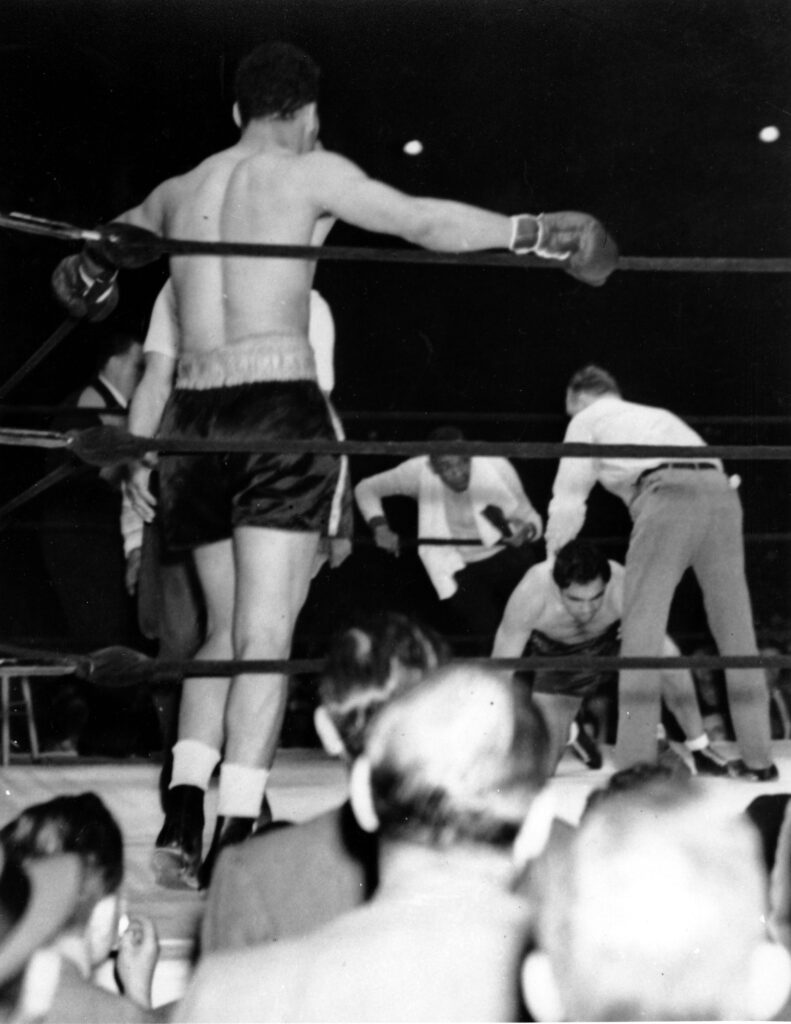Louis-Schmeling Emerges from the Myths of History on Its 85th Anniversary
Schmeling, the German champion, fought Hitler’s overtures to join the Nazi Party and even hid two Jewish brothers in his apartment on Kristallnacht.

The 1938 match between a Black boxer, Joe Louis — an American — and a German, Max Schmeling, marks its 85th anniversary today, but mythologizing it into a cartoon triumph over Jim Crow and Nazis misses the more compelling truth of the most significant sporting event of the 20th century.
Schmeling was a former World Champion and the only man to have handed Louis a loss up to that point in his professional career: A knockout at Yankee Stadium in 1936. Although Louis racked up more victories afterwards, the loss burned.
“I want Schmeling,” Louis said. “I ain’t no champion ‘til I beat Schmeling.” When the Brown Bomber got his rematch, again in the House that Ruth Built, the implications of victory no longer stopped at the ring’s edge. It was clear that on the world stage Adolf Hitler was seeking a rematch of a bloodier sort after Germany’s humiliation in World War I.
On the “History Author Show,” I interviewed a sports columnist, Jerry Izenberg, who was among the half of America’s 130 million people listening to the bout on the radio while Hitler tuned in at the Berghof at Berchtesgaden, a moment of national unity he recounts in “Baseball, Nazis & Nedick’s Hot Dogs: Growing up Jewish in the 1930s in Newark.”
“Harry Sperber was a German refugee, a Jew,” Mr. Izenberg told me of a sportswriter who traveled to Speculator, New York, where Schmeling was training. Hoping to find “some way to make this a Nazi-American fight, he snuck into Schmeling’s cottage” and found “a freshly laundered and pressed stormtrooper uniform in the closet.”
Sperber assumed that it was Schmeling’s, but it belonged to his trainer. “So, Sperber runs down to the press box,” Mr. Izenberg said, “gets all the American writers — half of whom are Jewish — and brings them up the hill. ‘Look at this!’ Well, they all write that, and now the fight becomes us against them.”

President Franklin Roosevelt, Mr. Izenberg said, “let it be known he had called Louis and said, ‘You’re fighting for America. You’ve got to do this,’ and Louis was ready to go.” He chuckles at the narrative now. “That’s according to the myth.”
Later, Mr. Izenberg got to know both men. “Schmeling,” he told me, “wasn’t fighting for Hitler. He was fighting because he beat this guy once. He was too old to win the title, everybody said, but he could win it now. That’s what motivated him.”
Schmeling, Mr. Izenberg said, had studied film and noticed Louis dropping his left hand after throwing rights. “Max waited. Bang! Bang! Bang! Eight, nine, ten. Over! Louis’s first defeat. That’s why Louis was steamed. It had nothing to do with Franklin Roosevelt.”
Schmeling, meanwhile, fought Hitler’s overtures to join the Nazi Party and on Kristallnacht, even hid two Jewish brothers in his apartment. “Max asked me several times over the years not to mention it … not to ‘glorify’ him,” one of the brothers, Henri Lewin, said in 1989. “He told me that what he’d done for me and my brother Werner in 1938 was ‘doing the duty of a man.’”
After so much hype, the rematch ended just 2:04 into the first round. This time, it was Schmeling who was beaten into submission. When his trainer threw in the towel, America rejoiced, but the man they’d cast as a Nazi stooge carried no hard feelings. When Louis died in 1981, Schmeling was a pallbearer and helped pay for his funeral.
Schmeling followed Louis into history at age 99, but the myth of their battle is harder to knock out than the two great fighters are forever frozen in 1938, on a summer night at the Bronx, when Louis won, and the only real loser was left screaming at a radio at Berchtesgaden.

